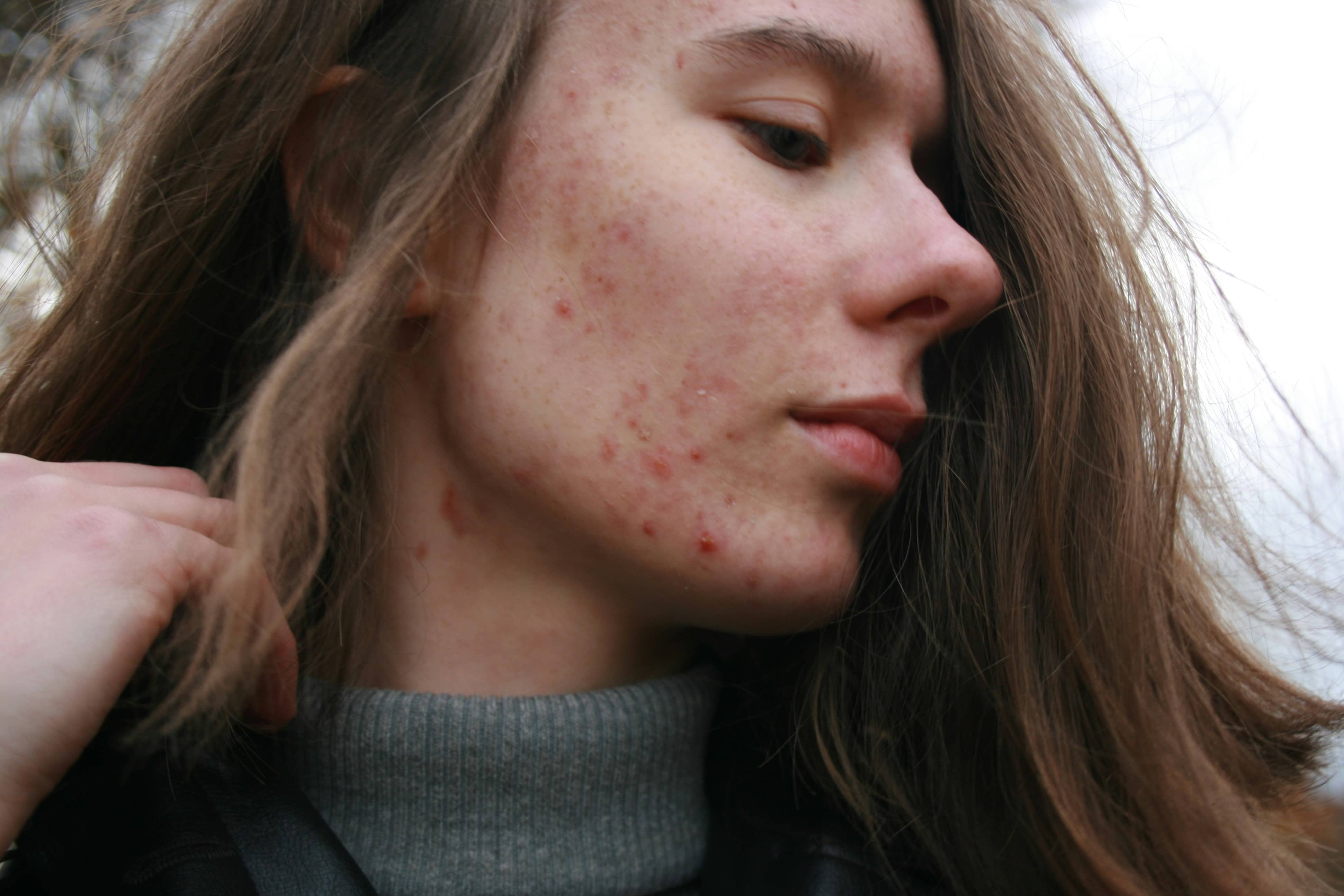
Ever noticed how your skin always seems to flare up right before a big event, during a busy work week, or when life just feels overwhelming? That’s not a coincidence.
Your skin is often the first place stress shows up. For many women, stress triggers breakouts, redness, itching or inflammation that can feel impossible to get on top of.
But the good news? Once we understand why this happens, we can start to calm the chaos and create a skin-soothing routine that supports you inside and out.
1. How Stress Impacts Your Skin
When your brain registers stress, it signals the adrenal glands to release cortisol—your primary stress hormone. Cortisol is helpful in short bursts, but when stress is ongoing or chronic, that cortisol surge starts to cause trouble for your skin.
Here’s how:
- It increases oil (sebum) production, which can clog pores and trigger acne.
- It disrupts your skin barrier, making it harder to retain moisture and more vulnerable to irritation.
- It ramps up inflammation in the body, aggravating conditions like eczema, perioral dermatitis and rosacea.
Stress also slows down skin healing, so those breakouts stick around longer, flare-ups become more frequent, and your skin just feels more reactive overall.
2. The Skin Conditions That Flare With Stress
Some skin types are more sensitive to stress than others, but these are the most common stress-linked skin conditions I see in clinic:
Acne: Cortisol increases oil production, and chronic stress can lead to higher androgen levels (like testosterone), which also stimulate sebum and worsen breakouts.
Eczema: Stress can weaken the skin barrier and contribute to immune dysregulation, both of which make eczema worse.
Perioral Dermatitis: This rash around the mouth and nose often has a hormonal and microbial trigger. Stress can shift your microbiome and increase inflammation, worsening flare-ups.
Rosacea: Stress is one of the most common triggers for rosacea flares due to its impact on blood vessels, immune function and inflammation.
Scalp Issues: Dandruff, itchiness and hair shedding can all increase during times of emotional or physical stress.
3. The Vicious Cycle: Stress → Flare-Up → More Stress
Here’s the kicker: when your skin breaks out, it doesn’t just affect how you look—it impacts how you feel. You might find yourself:
- Avoiding mirrors or photos
- Cancelling social plans
- Feeling more anxious, ashamed or low in confidence
This creates a feedback loop. More stress = more inflammation = more breakouts = more stress. And on it goes.
Recognising this cycle is the first step in softening it. Your skin isn’t betraying you. It’s signalling that your nervous system and hormones need a little extra TLC.
4. How to Break the Cycle and Calm Your Skin
You can’t remove stress entirely. But you can reduce your reactivity to it and support your skin to stay calm even during busy seasons.
Here’s where to start:
Calm Your Nervous System
- Sip calming teas like chamomile, lemon balm or passionflower
- Try 4-7-8 breathing or 5 minutes of daily meditation
- Spend time in nature or with pets (it’s more therapeutic than you think!)
- Supplement with magnesium glycinate and calming herbs if needed (always consult with your naturopath before self-prescribing)
Nourish Your Skin From Within
- Eat plenty of anti-inflammatory foods (think oily fish, berries, greens, turmeric)
- Reduce sugar, caffeine and alcohol—all of which can spike cortisol
- Stay hydrated with filtered water, herbal teas or mineral-rich broths
Be Gentle With Topicals
- Avoid harsh cleansers or over-exfoliating
- Use barrier-supportive products tailored to your skin's needs
- Patch test before trying anything new, especially during a flare
Rebuild Daily Resilience
- Stick to a morning and evening routine to anchor your nervous system
- Prioritise 7–9 hours of quality sleep
- Move your body regularly—even a short walk helps
This isn’t about being perfect. It’s about creating a lifestyle that feels safe to your body, so your skin can finally exhale.
In Summary
Stress and skin are deeply connected—but your breakouts aren’t just a surface problem. They’re a sign that your body is doing its best to protect you under pressure.
When you support your nervous system, reduce inflammation, and nourish your skin both inside and out, you create the conditions your body needs to heal.
Not sure which products or practices are right for your skin?Book a 1:1 consultation for personalised support and tailored skincare recommendations.





